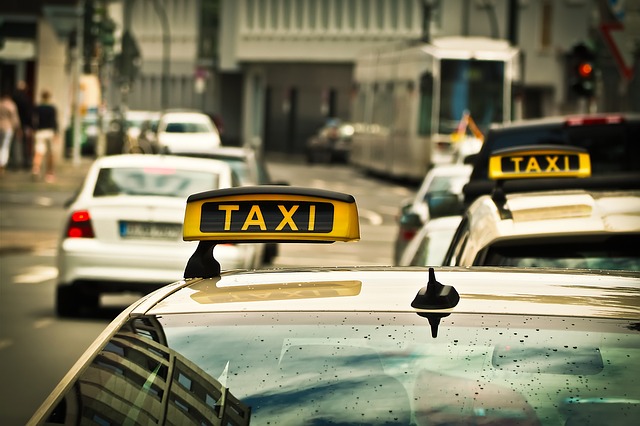
Uber, which is racing other companies to make the driverless car a commercial reality, has achieved a breakthrough of sorts: It has already turned itself into a driverless corporation.
Here’s hoping Uber can keep itself from falling into a ditch.
The ride-sharing company certainly has a tricky road ahead. Uber is in the middle of a legal battle with Waymo, the autonomous car company run by Alphabet Inc. (Google’s parent company). Google was an early leader in developing driverless cars, with several competitors – including Uber – close behind. But in February Waymo sued Uber, accusing it of stealing proprietary information. A former Google employee who had worked on autonomous cars, Anthony Levandowski, quit in early 2016 and joined Uber six months later; Waymo’s lawsuit alleges that he stole large amounts of intellectual property and used that stolen material to advance Uber’s driverless car projects.
In late May, Uber fired Levandowski, citing his refusal to cooperate with an internal investigation. Levandowski, while not a defendant in the Waymo suit, had previously invoked his Fifth Amendment rights and refused to answer practically any questions related to the dispute. About two weeks before Uber fired Levandowski, U.S. District Court Judge William Alsup referred the case to the U.S. Attorney’s office, which is not good news for Levandowski. Alsup also refused to allow Uber to settle the case in arbitration, which is bad news for Uber. Firing Levandowski was a decent strategic move, but ultimately it will not shield Uber from the Waymo lawsuit.
The fight with Google is just the capstone sequence for a company that has been run like “Animal House” for years. Uber’s recent headline appearances read like case studies in how to build negative PR. “How Uber Deceives the Authorities Worldwide” with software designed to deceive government inspectors attempting to clamp down on the company’s operations. “Uber Plans Millions in Back Pay After Shorting NYC Drivers” and “In Video, Uber CEO Argues With Driver Over Falling Fares,” not to mention any number of fights – mostly bureaucratic, but some physical – when Uber pushed into new markets and disrupted the old taxi industry oligopolies. “Mass Firings at Uber as Sexual Harassment Scandal Grows,” a scandal that included not only sexual harassment, but other sorts of discrimination and unprofessionalism as well, according to an internal probe and an investigation headed by former U.S. Attorney General Eric Holder.
New York Magazine’s headline was succinct: “Uber, But for Meltdowns.”
In the midst of all this, CEO Travis Kalanick has put his work life on hold to put his personal life in order, taking an indefinite leave of absence. Emil Michael, the company’s former number two, departed earlier in June. Marketing executive Jeff Jones left in March, citing incompatibility with Uber’s culture. In the aftermath of the sexual harassment scandal, Uber fired about 20 employees, some of whom were also senior executives. And, to top it off, board member David Bonderman had to resign after making a sexist remark at an all-hands meeting that was called to combat rampant sexism within the company.
Now Uber is literally running on autopilot. The functional heads who previously reported to top management suddenly have become top management, or what passes for it. The Wall Street Journal reported that Uber has been left with “no real line of succession” after Kalanick’s maybe-temporary departure. So, instead, the company will be run by over a dozen managers from a variety of departments while it seeks new executives.
As Joseph Bower, a Harvard Business School professor emeritus of business administration, told the Journal, “You can’t make decisions that way.”
It is hardly likely that a committee of 14 executives will be the best answer to the massive reputational hit Uber has absorbed in recent months. And while critics have long targeted the company’s treatment of its drivers as unfair, the recent revelations of how the company treats its employees may make at least some drivers glad to be categorized as independent contractors instead. The raucous atmosphere surely will make it harder for Uber to recruit top-flight executive talent any time soon.
Another accomplishment Uber has managed to pull off: losing money. A lot of it. That is not easy to do when you are a latter-day taxi company but you don’t buy the cars and you generally don’t pay the drivers, other than by giving them a cut of the fares they haul. Sure, Uber has legitimate expenses for its technology development (the app is a necessity, even if building its own autonomous cars isn’t) and its many legal battles. But people who run businesses as if they are frat houses typically are not very good at controlling costs and living on a budget. Uber hardly seems like an exception.
The private investors who own Uber have valued their company at $68 billion. But for any startup, the ultimate goal is to achieve value for the founders through a public offering or some other type of sale. Whether Uber can safely arrive at that destination remains to be seen.
Disclaimer: This page contains affiliate links. If you choose to make a purchase after clicking a link, we may receive a commission at no additional cost to you. Thank you for your support!





Leave a Reply